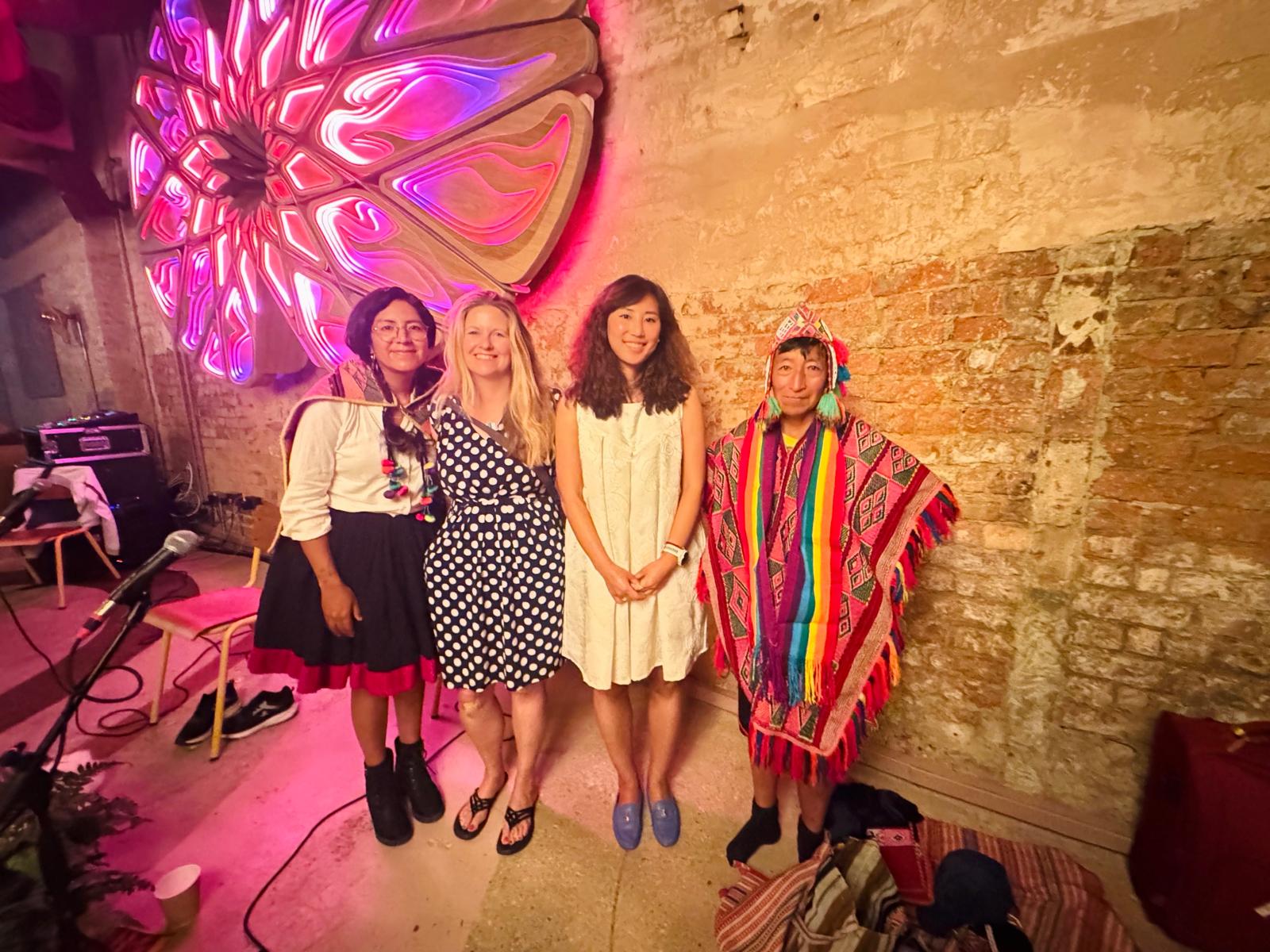Sustainable/Impact Investing] How Protecting Nature Becomes Profitable: Ilona Szabó on Brazil’s Nature Superpower
Ilona Szabó’s TED Talk highlights Brazil’s vision as a global ‘nature superpower,’ blending indigenous wisdom, policy, and finance to drive a regenerative economy and create new opportunities for institutional investors.
![Sustainable/Impact Investing] How Protecting Nature Becomes Profitable: Ilona Szabó on Brazil’s Nature Superpower](/content/images/size/w1200/2025/09/Screenshot-2025-09-24-163550.png)
Hi All,
I’m excited to share Ilona’s recent TED Talk, which struck me as both timely and deeply resonant. I first met Ilona and her team during London Climate Week in June 2025, and it was immediately clear she is helping reframe the conversation on nature and finance at a scale that matters. Seeing her ideas reach the TED stage feels like a significant moment — for Brazil, for global markets, and for all of us working at the intersection of capital and climate.
I. Key takeaways from the Ted talk
- Deforestation as Economic Crime: Over 90% of Brazil’s deforestation is illegal, connected to environmental crimes like land grabbing, illicit mining, and wildlife trafficking—representing a $280 billion global black market with vast, under-addressed financial flows.
- Redefining Value: Standing Forests vs. Cleared Land: To reverse destructive incentives, Brazil is building mechanisms to make standing forests and preserved ecosystems more valuable than cleared land—requiring robust pricing of natural capital including water, biodiversity, clean air, and carbon storage.
- Mainstreaming Nature in Policy and National Identity: Nature is being embedded into Brazil’s policy, diplomacy, and economic planning (e.g., the 2023 Ecological Transformation Plan), and exported as a priority in forums like G20 and the UN, creating a supportive ecosystem for large-scale, long-term investments.
- Bioeconomy and Indigenously-Rooted Innovation: New nature-based supply chains (e.g., food, cosmetics, textiles) are rooted in indigenous and local knowledge, with corporate and developmental partners scaling up these sectors. Tools like satellites, drones, and AI are accelerating forest mapping, supporting major companies (e.g., Natura) and market linkages from Amazonian producers to responsible buyers.
- Nature Restoration as a New Economic Sector: Brazil aims to reach zero deforestation by 2030 and restore 12 million hectares, implying $140 billion in capital mobilization and up to 2.5 million new jobs—creating clear investable opportunities in restoration start-ups and public-private partnerships.
- High-Integrity Nature Finance: Brazil is at the forefront of nature finance innovation, developing markets for carbon credits, biodiversity units, ecosystem service payments, and sustainability-linked bonds. A flagship initiative is the $125 billion Tropical Forest Forever Facility, designed to fund conservation at scale and reward communities for stewardship.
- Replication and Global Spillover: The frameworks and institutions being developed in Brazil (valuation, finance, impact measurement) can be a model for other countries aiming to attract large-scale, institutional, and blended finance rooted in measurable nature-positive impact.
This strategy provides a robust platform for impact investors seeking scale, transparency, and systemic change, while offering tangible vehicles (e.g., nature bonds, restoration equity, supply chain finance) for portfolio construction and measurable outcomes aligned to climate, biodiversity, and social equity goals.
Source: Ilona Szabó de Carvalho, "The World's First 'Nature Superpower's" TED Talk, September 2025.
Note) 'I. Key takeaways from the Ted talk' was put together by AI and reviewed by a human, me 😄.
II. Personal reflection: Nature and Indigenous People at the Table
Ilona’s vision of Brazil as the world’s first “nature superpower” resonated with me on multiple levels — not only as a professional in sustainable finance, but also through my own pilgrimages in the Andes. In 2018, I was lucky to meet Kary and Marin and traveled with Q’ero shamans, wisdom-keepers of the Inca lineage, across the mountains of Cusco. That journey deepened my understanding of the natural world in ways that no policy paper or market analysis ever could.
Three principles from that experience have stayed with me:
- Ritual/ceremony is technology — a system of alignment between human and nature.
- Language shapes reality — just as stories define markets, words define worlds. In finance, this is more than a metaphor. The language we use sets the terms for capital flows. “Net zero,” “transition finance,” and “climate risk” were once unfamiliar; now they anchor trillion-dollar markets. Similarly, reframing forests as “assets” and biodiversity as “capital” shifts how investors perceive risk and opportunity. Markets, like societies, are moved as much by narrative as by numbers.
- Nature is not external — she is our first economy, our original mother, and the ultimate balance sheet.
Fast forward to today: I had the privilege of meeting Don Alejandro Apaza (72), founder of @incamedicineschool and one of the last native paqos of the Ayllu Inca Paititi community during London Climate Week. These elders — who spend decades in solitude and silence, receiving oral transmissions of ancient knowledge — embody a model of intergenerational stewardship that our institutions often strive for but rarely achieve.
As the global conversation around nature, capital, and climate intensifies, I am reminded that Indigenous wisdom is not a relic of the past. It is an urgent resource for the future. For investors and institutions shaping the decades ahead, the path forward begins with listening: to science, to finance, and to the wisdom keepers who have always understood that nature is our greatest form of wealth. What's your take on it? I would love to hear from you.

![Obsidian Memo] Leadership Ground Truth: What Cuba, Puerto Rico, and Hawai'i Taught Me About Capital and Resilience](/content/images/size/w720/2026/02/Bad-Bunny.jpg)
![Obsidian Memo] The Great Re-Entry: Strategic Realignment and the Industrialization of Private Capital in the 2026 Financial Services Landscape](/content/images/size/w720/2026/02/photo-1496989981497-27d69cdad83e.jpeg)
![Obsidian Memo] Nature Finance & Circular Economy in Practice: A Sustainable Investing Perspective](https://images.unsplash.com/photo-1571785983781-3317703d64a6?crop=entropy&cs=tinysrgb&fit=max&fm=jpg&ixid=M3wxMTc3M3wwfDF8c2VhcmNofDEyfHxiaW9kaXZlcnNpdHl8ZW58MHx8fHwxNzcwOTU2NzQ3fDA&ixlib=rb-4.1.0&q=80&w=720)
Comments ()